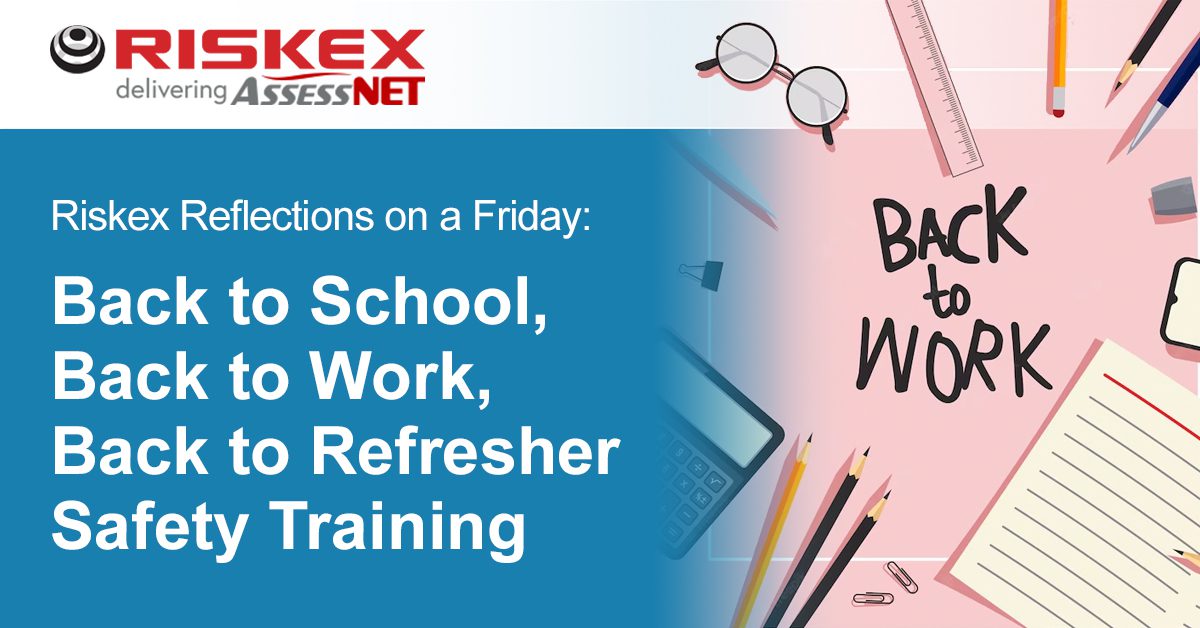
As we pack away our beachwear and passports following our summer holidays, it’s time to think about going back to work and refreshing yourself on work practices, upcoming projects and to-do lists…… and refreshing our knowledge and skills when it comes to keeping safe and well in the workplace.
Why is Refreshing Safety Training after the Summer holiday so important?
- Memory Recall: After a break, employees might not remember safety protocols and procedures as clearly. Refreshing their training helps jog their memories and ensures that critical safety information is at the forefront of their minds.
- Changes or Updates: Safety protocols can change over time due to new regulations, equipment updates, or lessons learned from incidents. Conducting refresher training ensures that employees are up-to-date with the latest safety information.
- Reduced Complacency: Extended breaks can lead to complacency, where employees become less vigilant about safety. Regular training reinforces the importance of maintaining a safety-first mindset.
- New Employees: If your organisation hires new employees during or after the summer holidays, they need to be brought up to speed on safety procedures. Refresher training provides an opportunity to onboard them effectively.
- Evolving Risks: Different seasons might bring about different risks. Summer could introduce risks like heat stress, dehydration, or increased outdoor activities. Addressing these seasonal risks during refresher training is crucial.
- Equipment Familiarisation: Employees might not have used certain equipment or tools for a while, leading to a potential lack of familiarity. Refreshing their knowledge about equipment usage and safety precautions can prevent accidents.
- Emergency Preparedness: During breaks, employees might forget emergency response protocols. Regular training reinforces what to do in case of fires, chemical spills, medical emergencies, etc.
- Behavioural Reinforcement: Consistent training reinforces safe behaviours and helps establish a safety-oriented culture within the workplace.
- Legal and Regulatory Compliance: Depending on your industry, there might be legal requirements for periodic safety training. Failing to provide refresher training could result in non-compliance and legal consequences.
- Risk Mitigation: Ultimately, the goal of safety training is to prevent accidents and injuries. Regular refresher training significantly reduces the risk of incidents, protecting both employees and the organisation.
Tips to help make refresher training effective:
- Use a variety of training methods to engage employees.
- Incorporate real-life scenarios and case studies for practical understanding.
- Encourage questions and discussions to clarify doubts.
- Provide clear documentation or handouts for employees to refer back to.
- Consider interactive workshops or simulations to make the training more engaging.
- By investing in regular safety refresher training, you create a safer, more informed, and more responsible workforce, contributing to the overall success of your organization.
Want to know more about our Training Management module?
Latest News
Riskex Limited
BizSpace
Linford Forum
18 Rockingham Drive
Milton Keynes
Buckinghamshire
MK14 6LY
What3words reference:
Contact us
Make an enquiry:
Company No. 05174302
VAT No. 844 5092 22


